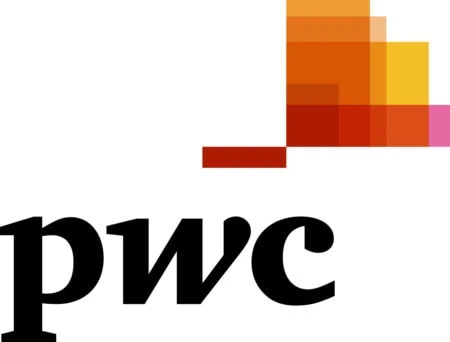What is the CSRD?
Consumers, investors, and regulators continue to call for increased transparency from companies on their environmental, social, and governance (ESG) risks and opportunities; and as a result, the direction of travel continues to move towards fully integrated financial and non-financial reporting and assurance.
The EU has clear objectives to shift investment towards more sustainable economic activities and to improve the quality and comparability of reporting. Here in the Channel Islands, we’re already familiar with the Sustainable Finance Disclosure Regulation, which the EU introduced to ensure transparency and consistency in sustainability reporting by EU financial market participants such as investment firms, asset managers, and funds. The CSRD complements this by extending the scope of corporate entities required to disclose sustainability information, with the intention of better informing stakeholders and incentivising changes in business behaviour.
Organisations caught by the CSRD will need to make sustainability disclosures on a so-called “double-materiality” basis. This reflects the fact that sustainability risks and opportunities can materially impact businesses (“outside-in” perspective), whilst business activities can materially impact society and the environment (“inside-out” perspective). The disclosures cover a range of ESG standards, from climate change and biodiversity through to workforce and internal controls. The details are contained in the proposed new European Sustainability Reporting Standards (ESRS) and cover a company’s ESG strategy, targets and progress, products and services, business relationships, employee incentive programmes, and value chains. Disclosures will need to be made in appropriate management reports in machine-readable format.
What’s the anticipated timing of the CSRD reporting requirements?
EU Member States have already started to transpose the CSRD into national law, so firms should monitor developments in EU Member States where they have operations or subsidiaries. The European Commission is currently consulting on the draft ESRS prior to expected adoption in July 2023, and the standards will then face scrutiny from the European Parliament and Council before being released in final form and entering into force.
The date from which an organisation is required to report varies depending on circumstances, but the first and largest businesses will be required to do so for the 2024 fiscal year – which is not far away. The breadth and depth of data, systems, reporting, and assurance required in order to be ready for compliance in time is extensive; such that for businesses with an EU footprint, the CSRD is becoming a major driver of ESG integration and transformation.
Some of the specific dates are set out below. Businesses need to consider now whether they currently, or may in the future on projected growth plans, fall in scope:
- “Large EU undertakings” with more than 500 employees and securities listed on an EU-regulated market will be among the first companies required to report using ESRS, with the first wave of reporting required for fiscal years beginning on or after 1 January 2024.
- Other “large EU undertakings” in scope will be required to report on fiscal years beginning on or after 1 January 2025.
- Listed small and medium-sized EU undertakings, certain small and non-complex EU institutions, and EU captive insurance undertakings are required to report for the first time for fiscal years beginning on/ after 1 January 2026.
- Global consolidated reporting will be required for in-scope non-EU headquartered companies for fiscal years beginning on or after 2028.
Does the CSRD apply to businesses in the Channel Islands?
The CSRD captures non-European companies listed in and/or with operations in EU-regulated markets. This means there are a number of entities operating in the Channel Islands that need to assess whether or not they are caught, at either a legal entity level or a consolidated group level, both now or in the future.
A legal entity falls in scope if it has securities listed on an EU-regulated market; or has been an EU-based large undertaking for two or more consecutive years, defined as exceeding two of the three following criteria:
- 250 employees.
- €20m balance sheet total.
- €40m net turnover.
At a consolidated level, a group would be in scope from the fiscal year 2028 if:
- Its parent has securities listed on an EU-regulated market; or
- consolidated EU revenues exceed €150m in the 2 years prior to reporting, and:
- at least one subsidiary is large or listed; or
- at least one EU branch has revenues exceeding €40m in the preceding year.
The exact criteria are complex and we strongly recommend a detailed assessment based on your firm’s structure and context. We’re already in conversations with many of our clients about applicability and scoping.
What do in-scope entities need to disclose and why?
At a high level, the CSRD is a positive step towards improved transparency, quality, and comparability of corporate sustainability performance.
All in-scope entities will need to disclose against climate-related reporting standards given the urgency of decarbonisation and for climate resilience under the Paris Agreement. Most in-scope corporate entities are already well on the way to measuring their carbon emissions and considering climate risks and impacts; but for those businesses who have not yet started, the CSRD provides another reason to do so.
The proposed climate disclosure requirements are helpfully based on the pillars of the Task Force on Climate-Related Financial Disclosures (TCFD) framework, and some elements mirror proposed US Securities & Exchange Commission (SEC) and global International Sustainability Standards Board (ISSB) disclosures. This is helpful for consistency in moving towards global standards; however, the draft ESRS disclosures do go beyond these other proposals in terms of their reporting expectations, so in-scope organisations should be prepared to address additional requirements.
Beyond the above climate-related disclosure requirements, in-scope entities also need to assess which other sustainability factors are material within their value chains and report on those or explain why they are not material.
Does the CSRD mandate third-party assurance?
The CSRD includes a mandatory assurance obligation for reported sustainability information, including ESRS compliance. The requirements begin with limited assurance (a negative form of assurance, stating that no matter has been identified by the auditor to conclude that the subject matter is materially misstated) and at a later date expand to reasonable assurance (which require more extensive procedures, including consideration of the company’s internal controls and essentially requires assurance to the same level as a financial audit). An in-scope company’s audit committee is expected to be responsible for sustainability reporting and the monitoring of associated processes.
The CSRD specifies that a company’s financial statement auditor would be able to provide assurance and it’s widely anticipated that this will be the case for most in-scope organisations, which is in line with the direction of travel towards integrated assurance and should enable efficiencies. We’re already in discussion with a number of our clients about how to prepare for CSRD assurance.
So what do I need to do?
We suggest four “no regrets” good practice actions business leaders in the Channel Islands can take now to get ahead of the CSRD:
- Scope: Determine whether your business or any part of it, could be in scope. This can be a complex exercise and there may be a need for early involvement of legal teams. Consider your future growth strategy and expansion plans and whether this is likely to tip you into scope in future years.
Significance: Determine which reporting standards apply. As noted above, there are mandatory reporting standards for all on climate change and energy, plus a range of wider sustainability factors for which a double materiality assessment needs to be undertaken. A timely materiality assessment is key to identifying whether additional disclosures are required (explanations must also be provided where a sustainability factor is deemed not material) and help you take a proportionate and meaningful approach. - Systems: Consider whether you have appropriate processes and controls to accumulate necessary data and support its reliability. Having systems in place to source quality data will be key to successful adoption, not least because assurance over disclosures is required from year one of reporting and directors will be held accountable. This may be particularly challenging if reporting will be required for the first time at a sub-consolidation or subsidiary level. Leading practice would be to evaluate current disclosures and identify significant gaps based on the initial exposure drafts.
- Strategy: The CSRD goes beyond mandating sustainability disclosures: it’s intended to shift the way companies do business, who they do business with, and how capital is allocated. Rather than viewing the CSRD simply as a regulatory burden, leading companies are seeing it as a driver to reframe their purpose and for accelerated business transformation. It’s a strategic opportunity to assess the most significant ways in which your business interacts with society and the environment; to track progress and tell this story to stakeholders in a way that is comparable; to better manage business risks; and to strengthen your positive impact on the world. It will be a journey, but companies can position themselves for success through early engagement.
How can PwC help?
PwC is already helping clients across a range of industries globally and locally with CSRD preparedness, including scoping, implementation planning, data gathering support, preparing for assurance, and assurance services.
If you would like to know more about the CSRD, the implications for Channel Islands firms, and how PwC might be able to support you, please do get in touch with our ESG team here in the Channel Islands.

Tori Davis Advisory Senior Manager, PwC Channel Islands
tori.davis@pwc.com
+44 7797 911714

Amy Pickering ESG Assurance, PwC Channel Islands
amy.pickering@pwc.com
+44 7781 125874

